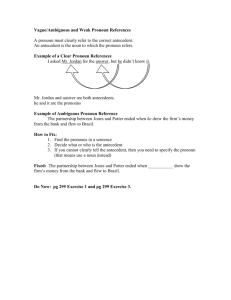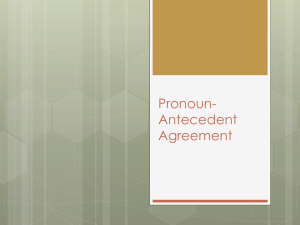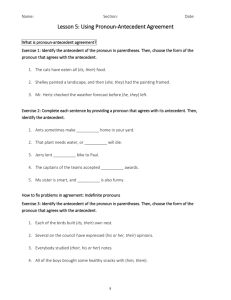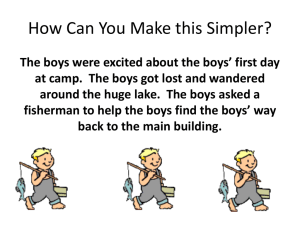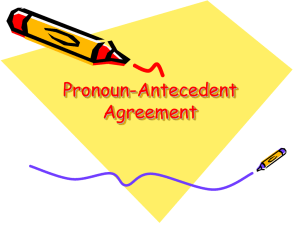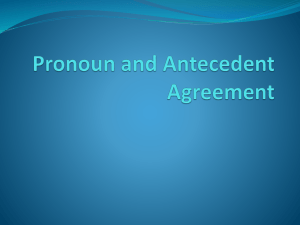Pronoun/Antecedent Agreement in Number
advertisement
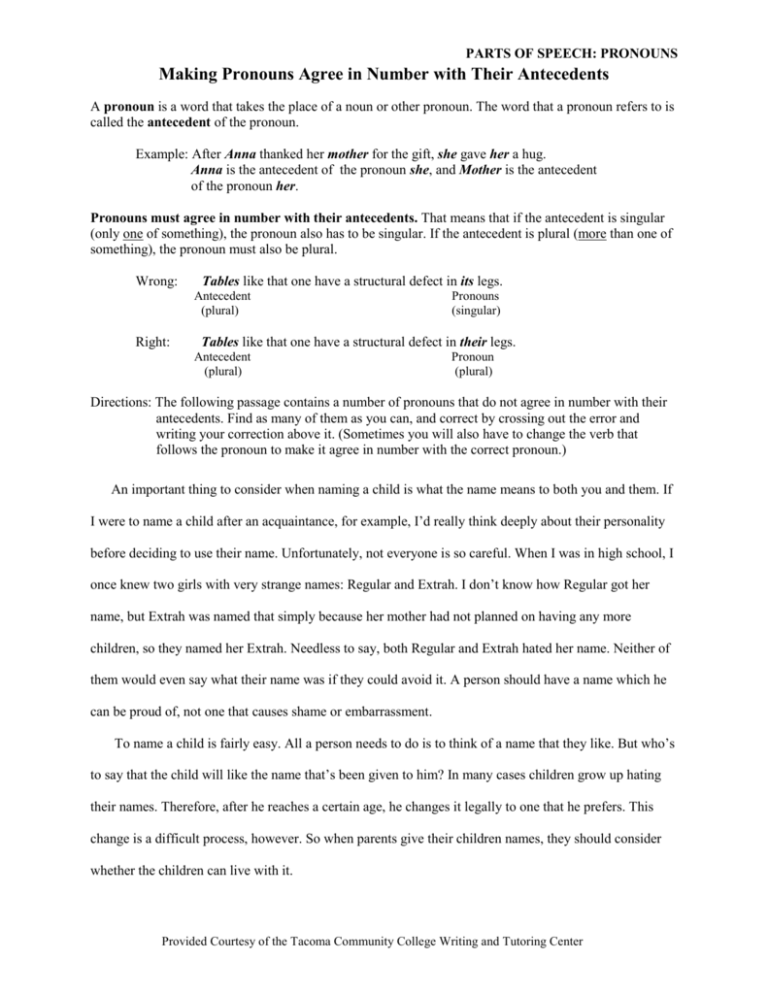
PARTS OF SPEECH: PRONOUNS Making Pronouns Agree in Number with Their Antecedents A pronoun is a word that takes the place of a noun or other pronoun. The word that a pronoun refers to is called the antecedent of the pronoun. Example: After Anna thanked her mother for the gift, she gave her a hug. Anna is the antecedent of the pronoun she, and Mother is the antecedent of the pronoun her. Pronouns must agree in number with their antecedents. That means that if the antecedent is singular (only one of something), the pronoun also has to be singular. If the antecedent is plural (more than one of something), the pronoun must also be plural. Wrong: Tables like that one have a structural defect in its legs. Antecedent (plural) Right: Pronouns (singular) Tables like that one have a structural defect in their legs. Antecedent (plural) Pronoun (plural) Directions: The following passage contains a number of pronouns that do not agree in number with their antecedents. Find as many of them as you can, and correct by crossing out the error and writing your correction above it. (Sometimes you will also have to change the verb that follows the pronoun to make it agree in number with the correct pronoun.) An important thing to consider when naming a child is what the name means to both you and them. If I were to name a child after an acquaintance, for example, I’d really think deeply about their personality before deciding to use their name. Unfortunately, not everyone is so careful. When I was in high school, I once knew two girls with very strange names: Regular and Extrah. I don’t know how Regular got her name, but Extrah was named that simply because her mother had not planned on having any more children, so they named her Extrah. Needless to say, both Regular and Extrah hated her name. Neither of them would even say what their name was if they could avoid it. A person should have a name which he can be proud of, not one that causes shame or embarrassment. To name a child is fairly easy. All a person needs to do is to think of a name that they like. But who’s to say that the child will like the name that’s been given to him? In many cases children grow up hating their names. Therefore, after he reaches a certain age, he changes it legally to one that he prefers. This change is a difficult process, however. So when parents give their children names, they should consider whether the children can live with it. Provided Courtesy of the Tacoma Community College Writing and Tutoring Center
